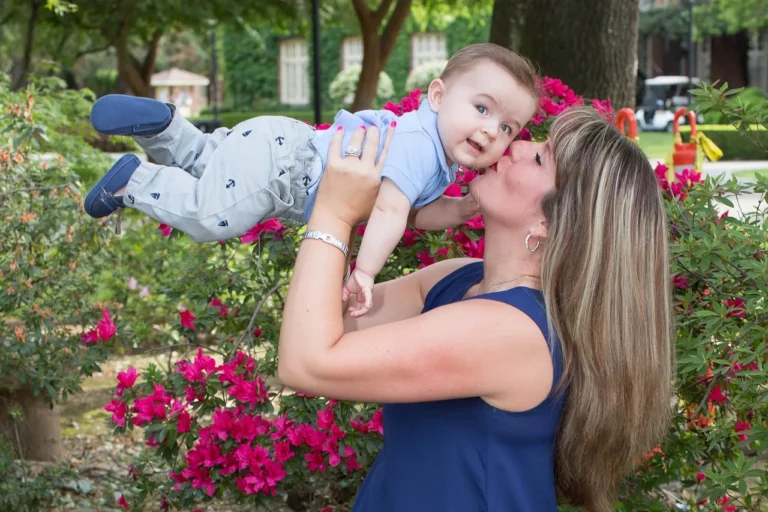Intentional Parenting: Nurturing Stronger Bonds and Empowering Children
Parenting is a journey filled with joys, challenges, and endless opportunities for growth. As parents, we all want to raise happy, confident, and well-adjusted children. Intentional parenting, a mindful and purposeful approach to raising children, offers a path towards achieving these goals. In this article, we will explore the concept of intentional parenting, its benefits, practical strategies, and the positive impact it can have on children.
Table of Contents
I. Introduction to Intentional Parenting
A. What is intentional parenting?
Intentional parenting is an approach that emphasizes being present, purposeful, and conscious in our interactions with our children. It involves making deliberate choices and taking intentional actions to meet the emotional, developmental, and psychological needs of our children.
B. Importance of intentional parenting
Intentional parenting is crucial for fostering strong parent-child relationships, promoting healthy child development, and creating a nurturing family environment. By being intentional in our parenting, we can better understand our children, support their growth, and build lasting connections that contribute to their overall well-being.

II. Benefits of Intentional Parenting
A. Enhanced parent-child relationship
Intentional parenting cultivates a deeper connection between parents and children. By actively engaging with our children, listening to their thoughts and feelings, and being attuned to their needs, we establish a strong foundation of trust and emotional intimacy. This bond fosters a sense of security, enabling children to seek guidance, share their experiences, and develop a positive self-image.
B. Improved child development and well-being
Intentional parenting plays a vital role in promoting optimal child development. By providing consistent love, support, and guidance, parents can help children develop essential life skills, such as resilience, problem-solving, and empathy. Moreover, intentional parenting nurtures a positive self-esteem, self-confidence, and a healthy emotional outlook, contributing to overall well-being.
C. Strengthened family bonds
Through intentional parenting, families can create a harmonious and supportive environment. By prioritizing quality time, shared experiences, and open communication, families can forge stronger bonds. This fosters a sense of belonging, instills family values, and promotes mutual respect and understanding among family members.
III. Principles of Intentional Parenting
A. Being present and engaged
Being present and engaged is at the core of intentional parenting. It involves setting aside distractions, actively listening to our children, and giving them our undivided attention. By being fully present in their lives, we demonstrate our love, show that their thoughts and feelings matter, and strengthen the parent-child connection.
B. Setting clear boundaries and expectations
Setting clear boundaries and expectations is essential in intentional parenting. Children thrive when they know the limits and understand the expectations set by their parents. Clear boundaries provide structure, consistency, and guidance, fostering a sense of security and promoting healthy decision-making.
C. Promoting open communication
Open communication is a vital aspect of intentional parenting. Encouraging children to express their thoughts, emotions, and concerns in a safe and non-judgmental environment fosters trust and strengthens the parent-child relationship. By actively listening, validating their feelings, and engaging in meaningful conversations, parents can better understand their children’s perspectives and support their emotional growth.
D. Encouraging autonomy and independence
Intentional parenting involves striking a balance between nurturing and allowing children to develop autonomy and independence. By gradually granting age-appropriate responsibilities, encouraging decision-making, and supporting their individual interests, parents empower their children to become self-reliant and confident individuals.
E. Practicing empathy and understanding
Empathy and understanding are key principles of intentional parenting. By putting ourselves in our children’s shoes, acknowledging their emotions, and validating their experiences, we create an environment that promotes emotional well-being. This fosters a strong emotional connection and helps children develop empathy towards others.

IV. Strategies for Intentional Parenting
A. Quality time and individualized attention
Spending quality time with each child individually is a powerful way to practice intentional parenting. By dedicating one-on-one time, parents can deepen their understanding of their child’s unique needs, interests, and aspirations. This individualized attention fosters a sense of importance, strengthens the parent-child bond, and creates cherished memories.
B. Consistent routines and structure
Consistency and structure play a vital role in intentional parenting. Establishing regular routines, such as mealtime, bedtime, and study time, provides a sense of predictability and stability for children. Consistency helps children feel secure, reduces anxiety, and allows them to develop essential life skills, such as time management and responsibility.
C. Teaching life skills and values
Intentional parenting involves imparting life skills and values that prepare children for the future. By teaching practical skills, such as problem-solving, critical thinking, and communication, parents empower their children to navigate challenges with confidence. Instilling core values, such as honesty, kindness, and resilience, helps children develop a strong moral compass.
D. Modeling positive behavior
Parents serve as role models for their children. Intentional parenting requires modeling positive behavior and attitudes. Children observe and learn from their parents’ actions, so by demonstrating kindness, respect, and healthy coping mechanisms, parents set a powerful example. Modeling positive behavior fosters a nurturing and supportive family environment.
E. Supporting emotional intelligence
Intentional parenting involves nurturing children’s emotional intelligence. By acknowledging and validating their emotions, parents help children develop a healthy emotional vocabulary and regulation skills. Encouraging emotional expression, teaching problem-solving strategies, and practicing active listening build emotional resilience and promote healthy relationships.
V. Challenges and Tips for Intentional Parenting
A. Balancing work and family
Balancing work responsibilities with intentional parenting can be challenging. To overcome this, prioritize quality over quantity. Plan dedicated family time, create boundaries between work and family life, and delegate tasks when possible. Remember that small moments of connection can make a significant impact on your child’s well-being.
B. Managing screen time and technology
In the digital age, managing screen time and technology poses a challenge for intentional parenting. Set clear guidelines and boundaries around screen usage, encourage offline activities, and engage in tech-free quality time. Foster open discussions about online safety, responsible internet use, and the importance of balance.
C. Dealing with discipline and conflicts
Discipline and conflicts are natural aspects of parenting. When addressing discipline, adopt a positive and constructive approach. Set age-appropriate consequences, focus on teaching and learning, and use discipline as an opportunity for growth. During conflicts, practice active listening, encourage open communication, and foster problem-solving skills.
D. Practicing self-care as a parent
Self-care is essential for intentional parenting. Taking care of your own well-being allows you to show up as your best self for your children. Prioritize self-care activities, seek support from your partner, friends, or family members, and create a support network that enables you to recharge and maintain a healthy work-life balance.

VI. Impact of Intentional Parenting on Children
A. Improved academic performance
Intentional parenting positively influences children’s academic performance. By creating a supportive environment that prioritizes education, parents foster a love for learning, provide necessary resources, and support their child’s educational journey. The consistent involvement and encouragement from intentional parents significantly contribute to academic success.
B. Increased self-esteem and resilience
Intentional parenting nurtures children’s self-esteem and resilience. Through positive reinforcement, constructive feedback, and validation of their efforts, parents boost their child’s self-confidence. By providing a safe space to explore and learn from failures, intentional parents teach resilience, helping children bounce back from challenges and setbacks.
C. Better social and emotional skills
Intentional parenting enhances children’s social and emotional skills. By prioritizing open communication, empathy, and understanding, parents teach children how to navigate and build healthy relationships. Intentional parents encourage their children to express their emotions, empathize with others, and develop effective communication skills, which are essential for healthy social interactions.
D. Long-term benefits in adulthood
The impact of intentional parenting extends well into adulthood. Children raised with intentional parenting principles are more likely to develop strong self-esteem, exhibit better decision-making skills, and possess healthy coping mechanisms. These qualities contribute to their overall well-being, success in relationships and careers, and their ability to become nurturing parents themselves.
VII. Conclusion
Intentional parenting is a transformative approach that empowers parents to create meaningful connections with their children and support their holistic development. By being present, setting clear boundaries, promoting open communication, and fostering autonomy, parents can nurture stronger bonds and empower their children for a fulfilling future.
Frequently Asked Questions
Becoming a more intentional parent starts with mindfulness and self-reflection. Prioritize quality time, active listening, and setting clear intentions in your interactions with your child. Stay informed about child development, seek support from parenting resources, and be open to learning and adapting your parenting style.
Yes, intentional parenting is applicable to all age groups, from infants to adolescents. The strategies and approaches may differ based on the developmental stage of your child, but the core principles of being present, setting boundaries, and promoting healthy communication remain relevant.
Practical ways to practice intentional parenting include establishing regular family rituals, engaging in meaningful conversations, participating in activities aligned with your child’s interests, setting aside dedicated one-on-one time, and consistently reinforcing positive behavior and values.
Yes, intentional parenting can be challenging, especially when juggling multiple responsibilities and navigating different stages of your child’s development. However, with self-awareness, support, and a commitment to growth, intentional parenting can become a rewarding and transformative experience.
Intentional parenting benefits both parents and children by fostering stronger relationships, promoting healthy child development, and creating a nurturing family environment. It allows parents to feel more connected to their children and experience the joy of watching them grow, while children benefit from the guidance, support, and love of intentional parents.
FOR MORE VALUABLE TIPS BUY OUR PARENTING COURSES AT https://www.kidzoot.com/courses/
CONSULT YOUR PERSONAL PARENTING SOLUTIONS VIA APPOINTINTMENT AT https://www.kidzoot.com/appointment-booking/
Follow Us on Twitter www.twitter.com/kidzootworld

